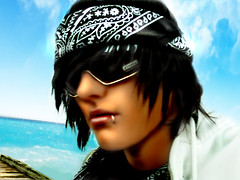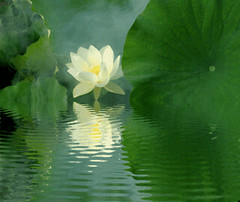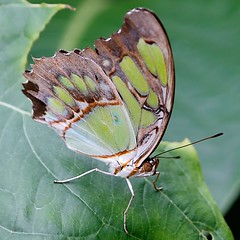龙应台应英国剑桥大学之邀,担任今年度「川流讲座」学者,於五月十七日所作公开演讲,以下是讲稿内容摘要:
我们都知道,台湾海峡是全球「危险区」之一。五六百枚飞弹布在中国海岸,对准台湾岛群。需要这麽多飞弹来对付那麽小一个岛,其实是蛮令人惊异的──中国的面积是台湾的两百五十六倍,人口是五十八倍。两岸之间有多远?从马祖的海岸,你其实看得见对面行走的乡亲。一个战斗机飞行官告诉我,从新竹机场起飞到抵达对岸,六分钟。
成长的经验塑造价值
说台湾海峡是个可能威胁世界和平的「引爆点」这个用语,对台湾人而言,一点也不夸张。「引爆」不是说着玩的。在一个不到一百五十平方公里的金门岛上,仍有一百五十万枚炸弹,每一平方公里有一万枚炸弹,而这还不包括五十万枚地雷和五十万颗子弹在库藏中。金门岛上七万居民每一个人可以「分享」到二十二个炸弹,八个地雷,四十四颗子弹。台湾岛上的军火库,也常常传出爆炸。
战争离我们的记忆不远。从一九五八之后的二十年里,大概有一百万个炸弹投进金门的土地上。我们在一种「战时」状态下成长。在我十二岁之前,我已经在学校演过很多次背着枪的小兵,用刺刀杀「敌人」,在我十八岁之前,我已经参加过无数次的「国语演讲比赛」,针对「光复大陆,拯救同胞」提出我的智慧和慷慨激昂的见解。
出海的渔民受严格管控,而且基於「安全」理由,长年不被允许备有充分的通讯器材,暴风来时,只有沈灭的命运。我们有一千五百公里的海岸,但是,海岸是军事重地,所以很多人不会游泳。对海,我们恐惧。
所谓siege mentality,「被封锁心态」,我们是很熟悉的。
我在一九七九年认识了第一个大陆的「中国人」。比较彼此的成长过程,发现我们其实很像:他也演过小兵「杀敌」,他也参加过演讲比赛,唱过无数的爱国歌曲。我们之间的差别只不过在於:他的「英雄」和「烈士」是我的「叛徒」和「罪人」,我的「伟人」和「救星」是他的「匪」和「帮」。「革命」这种词在我听来带点儿恐怖,在他却是义正辞严。他说的「左」,代表「反动」,落后,保守,刚好是我心目中的「右」。
因此,我们之间的价值观差别大吗?在深层的价值上,我们其实是一模一样的。英雄和烈士、叛徒和罪人的名字换了,但是判取忠奸的价值标准,完全是同一套。
差别,是在一九八七年台湾正式地成为一个民主社会之后才显着的。在台湾,一统的「大叙述」、大写的「真理」被无数细碎的「小叙述」所取代,大写的任何伟大理念都被小写的个人价值所凌驾於上。任何共识都不得不经过争取和格斗而后获得。民主使得台湾人的价值观有了一个深刻的改变:国家集体和个人的关系,两者之间的权利和义务的认定,和从前,也和现在的中国,有了比较根本的不同。
中国不是铁板一块
人权,是民主体制里一个核心的价值。在这个关键的观念上,台湾和中国大陆也有严重的分歧。但是,当我把「人权」和「中国」两个词相提并论时,诸位很可能以为我要谈的是有多少作家、记者以言论获罪,被关在牢中,或者,中国每年有多少死刑犯,每年有多少农民房舍被强制拆除而流离失所。诸位是西欧人,我认为,这种谈论人权的方式,你们听得太多了,因为这是西欧的主流谈法,我反而愿意提出另一个角度供诸位思索。
没有错,言论控制是中国每天的现实,而且随着科技发展,它控制个人和媒体的技术跟着日新月异。但是在这我们目睹的集权管控的同时,我们或许也不能不同时看见正在发生的改变。在二○○五年,据统计有九万多次的大型群众示威和抗议事件在中国发生。这代表人民的权利意识在快速成长中,二○○三年甚至被中国媒体称呼为「维权年」:年轻的律师协助农民控告政府侵权,中产阶级为自己的私有财产上法庭,作父母的争取教育权,爱狗的上街呼吁尊重「宠物权」等等。
我认识到的是,中国并非一块铁板,它的价值观也在分裂中,而且在我们比较看不到的内部,价值正在进行彼此的拉锯。全球社区的责任可能就在於,深刻认识这个价值观在变动中的新中国,然后清楚知道我们要做些什麽,不做些什麽,才能使中国内部理性、开放、和平的那一半力量在价值的拉锯中得到上风。
台湾有人权问题?
诸位可能觉得奇怪,台湾有人权问题吗?
这样说,假定我们有这麽一个小社区,因为什麽理由,我们不准许这个社区里的人出席任何会议,参与任何决策,我们不准许他们出现在任何全体社区的庆典、哀悼、纪念的重要场合上,而且,我们禁止这个社区的领袖离开他的社区进入我们的?围内。甚至於,如果大社区失火了,我们不通知他们。甚至於,我们不准许他们以自己的名字称呼自己。
请问,这叫不叫人权侵犯呢?
就经济力来说,台湾是全球第十五大经济实体。就人口来说,台湾是全球两百多个国家中第四十八大。但台湾被摒除在几乎所有国际组织之外。它必须用金钱来「买」外交。它的领袖出行时,受尽羞辱。陈水扁总统在二○○六年「迷航」国际,固然是他个人的行事方式极为可议,但是他所招来的屈辱,不是他个人的屈辱,是整体台湾人的屈辱。
国际社区对於台湾在政治上的孤立处境,是有所了解的,但是我认为,国际社区对於这种孤立的深度和广度,以及它对台湾人民伤害的程度,没有丝毫认识。并非只在政治领域台湾被「隔离」,「隔离」其实渗透所有层面:艺术、学术、公共卫生、教育,所有领域。就以艺术来说,譬如在威尼斯展中,台湾无法在公共的国家馆园区中展出,必须在区外另找场馆,而已有的展馆,还要年年担忧是否保存得住。
最突出而尖锐的例子,当然是「非典」事件。疾病爆发时,台湾卫生官员紧急知会世界卫生组织,要求其提供资料和协助,得到的答案是,你不是会员,请去找北京。但是在疾病爆发初期,北京官方根本还没准备好如何处理自己的问题。
台湾的两千三百万人先是经过三十七年之久的戒严,戒严就是一种锁国,然后在戒严的后期,又开始了长达三十五年的国际封锁,一直到今天。三十七年戒严和三十五年封锁,不可能没有「症状」出现。二○○六年一份台湾杂志的调查结果是惊人的:
八十%的台湾人不知道联合国总部在哪里
八十%的人不知道诺贝尔文学奖在哪一个城市颁发
八十%的人说不出世界最大的雨林在哪里
六十%的人说不出德国用什麽货币
六十%的人说不出雅典在哪一个洲
你不能以为这个调查是在偏远乡村里做的,不,它的主要调查对象是在台北,而台北的人口,是华人世界里平均教育水准最高的城市。
联合国成员怎麽解释?
所谓国际,其实已经变成一个共同的全球社区,而台湾人完全被剥夺了参与全球社区的社会权和文化权。诸位是否知道,剥夺社会权和文化权,是违反联合国的人权宪章的。请读一下联合国人权宪章第二条和第二十二条的条文:
本章所涵盖之权利,不可因个人所属的政治、司法或国家的国际地位而有受影响,不论他所属的是独立的,托管的,不自主的,或任何其他形式的主权管辖。
透过国家的努力或者国际的合作,每一个个人都有经济权、社会权和文化权,这些权利对於他的尊严和个人发展是不可或缺的。
西欧国家都是联合国的成员,请问你要怎麽对台湾的孩子们解释这两个条款的精神呢?
为了世界和平
三十七年的自动封锁,三十五年的被迫封锁,不论自动或被迫,人民何辜?今天国际对台湾的孤立和「遗弃」,使台湾人觉得,他们因为争取到了民主而反受「惩罚」。全球社区一旁冷眼观看的,是一代又一代的台湾孩子,明明在全球化的大村子里头成长,他们禀质优秀而且加倍努力,但是他们被剥夺了全球公民籍,也被剥夺公民的基本尊严。
这种剥夺的伤害后果是双重的:
一,台湾的民主无法做实质的提升。请诸位告诉我,一个完全无法参与国际事务,无法从国际事务中得到演练,更无法对国际尽责任、负义务的社会,有可能成为高品质的民主吗?
二,台湾的孤立持续,人民的挫折加深,对於孤立的「始作俑者」─中国─的敌意更强,与中国对抗或分离的意愿也就更甚,台海冲突的可能性,更高。
国际社区要关心台湾处境,不是只为了台湾人,而是为了全球村本身的安全。逻辑其实这样简单:在中国寻求现代化的路途上,台湾经验──不论是好的还是坏的,都是中国一个最重要的参考系。如果说,一个开放、理性、有公民参与的中国对於世界的和平稳定是必要的,那麽全球社区就不能不重视台湾的重要。也就是说,台湾的民主愈得到全球社区的支持和呵护,台海的稳定,世界的和平,就愈得到保障。
国际对於台湾的封锁,对於台湾孩子全球公民人权的剥夺,你不能视而不见,它必须停止,不仅只为了台湾,更为了国际的和平。
── 原载 中国时报
If You Want Peace, You Must Not Keep Hurting Taiwan. By Lung Ying-tai (龍應台). May 18, 2007. Public speech on May 17, 2007 at Cambridge University, England.
[in translation]
We all know that the Taiwan strait is one of the "danger zones" in the world. Five to six hundred missiles are located on the Chinese coast and aimed at the Taiwan islands. It is actually astonishing why so many missiles are needed against such a small island. The area of China is 256 times that of Taiwan and the population size is 58 times as big. How far apart are the two coasts? From the Matsu coast, you can see the people walking on the opposite side. A fighter plane pilot said that it takes 6 minutes to go from Hsin Chu Airport to reach the opposite shore.
It is no exaggeration for the Taiwanese people to say that the Taiwan strait could be an "ignition point" that threatens world peace. "Ignition" is no joke. On the fewer than 150 square kilometers of Kinmen island, there are 1,500,000 bombs or about 10,000 bombs per square kilometer. This does not include the 500,000 land mines and 500,000 gun shells. The 70,000 inhabitants of Kinmen island get to "share" 22 bombs, 8 land mines and 44 gun shells each. The ammunition depots on Taiwan often explode.
War is not far back in our memories. For the 20 years after 1958, about 1,000,000 explosive bombs crashed into the ground at Kinmen. We grew up in a state of "wartime." Before I was 12 years old, I had already acted many times in school plays as a little soldier carrying a rifle on my back and killing "enemies" with a bayonet. Before I was 18 years old, I had participated in numerous "Mandarin oration performances" to offer my wisdom and impassioned views on "recovering the mainland and saving the compatriots."
The seafaring fishermen were under strict control. For "safety" reasons, they were not permitted to have adequate communication equipment. When the storms came, they faced the fate of sinking into the ocean. We have 1,500 kilometers of sea coast. But the sea coast was a military zone and therefore many people do not know how to swim. We are afraid of the ocean.
We are familiar with the so-called "siege mentality."
In 1979, I met the first "Chinese person" from mainland China. In comparing our growing-up process, we found that we were actually very much alike: he had played a little soldier who "killed enemies" and he participated in oration competitions and sang innumerable patriotic songs. Our differences were: his "heros" and "martyrs" were my "traitors" and "sinners"; my "great men" and "saviors" were his "bandits" and "gangs." The word "revolution" sounded terrifying to me, but it was righteous to him. When he said "left," he meant "reactionary," backwards and conservative, which is "right" for me.
Was there so much difference between our values? At the deeper level of values, we are actually identical to each other. Heros and martyrs, traitors and sinners. The names were changed but the standards for telling good from bad were identical.
The difference began to show after Taiwan officially became a democratic society in 1987. In Taiwan, the singular "Grand Narrative" and the sole "Truth" were replaced by many "small narratives." Any grand concept was superseded by the small narratives of personal values. Any consensus had to go through struggling and fighting. Democracy led to a deep transformation of the value system of Taiwanese people: the relationship between the national collective whole and the individual including the beliefs about the rights and obligations between the two became different from Taiwan before and with the present China in a fundamental way.
Human rights is one of the core values in a democratic system. On this key concept, there is a serious divergence between Taiwan and mainland China. When I bring up the words "human rights" and "China" at the same time, you must think that I am going to talk about the number of writers and reporters who have been sent to jail, or the number of death penalties in China each year, or the number of peasant homes that were demolished with their inhabitants left homeless. You are western Europeans and I believe that you must have heard enough about human rights being discussed this way. This is the mainstream approach in western Europe. I would rather offer a different angle for you.
It is true that the control of speech is a daily reality in China. Following the development of science and technology, the technology to control people and media are also changing. But at the same time that we watch the collective controls, we cannot help but see the ongoing changes. In 2005, it is estimated that more than 90,000 large-scale mass demonstrations and protests occurred in China. This showed that the people's awareness of their rights has grown rapidly. The year 2003 was even referred to as the Year of Rights Defense by the Chinese media: young lawyers helped farmers to sue the government for violating their rights; the middle-class went to court to defend their private property; the parents fought for the right of education; dog lovers marched in the street to call for respect of the rights of pets, etc.
I recognize that China is not just a single slab of iron. Its values are also in the process of being divided. In the inside part which we cannot see too clearly, the various values are combatting in a seesaw battle. The responsibility of the global community is to know this new China with the changing values. Then we will know what to do and what not to do so, that the rational, open and peaceful half of the forces in the seesaw battle of values can gain the upper hand.
Perhaps you wonder, Is there a human rights problem with Taiwan?
Put it this way -- suppose we have a small community here. For what reasons do we have to not permit the people from this community to attend any conference or participate in any decisions. We do not allow them to appear at any important festive, mourning or memorial functions. Furthermore, we forbid the leaders of this community to step out of their community and enter our area. Worse yet, if there is a huge fire, we will not notify them. We don't even allow them to call themselves by their own name.
Please ask yourselves: Why is this not a violation of human rights?
In terms of economic power, Taiwan is the fifteenth largest economic system in the world. In terms of population size, Taiwan is the 48th largest in the more than 200 nations of the world. But Taiwan has been excluded from almost all international organizations. It has to spend money to "buy" diplomacy. When its leader travels abroad, he is insulted and humiliated. In 2006, President Chen Shui-bian went on the "lost" international mission. Although his personal ways can be criticized, the humiliation heaped on him was not just his personal one. It was a humiliation of all the people of Taiwan.
The international community knows about the political isolation of Taiwan. But I think that the international community has no awareness whatsoever about the depth and breadth of this isolation and the degree of damage done to the people of Taiwan. This is not just about the "isolation" of Taiwan in the realm of politics, but the "isolation" pervades at all levels: art, academics, public health, education, every field. Using art an example, Taiwan cannot be represented in the public national museum venue at the Venice Art Exposition. Instead, it must find another venue for which it has to worry about being able to retain for the next year.
The most prominent and acute example is the SARS episode. When the epidemic broke out, Taiwan health officials immediately contact the World Health Organisation for information and assistance. They received the response, "You are not a member. Please go and talk to Beijing." But during the initial stages when the epidemic first broke out, the Beijing officials were not even prepared to deal with their own problems.
The 23 million people in Taiwan went through a martial law period of 37 years. Martial law meant a form of siege. After the martial law period, there was another 35 years of international blockade up to now. After 37 years of martial law and 35 years of blockage, there has to be some "symptoms." In 2006, the survey results from a certain Taiwan magazine are astonishing.
* 80% of the Taiwanese do not know where the United Nations headquarters is located
* 80% of the people do not know in which city the Nobel Prize for Literature is awarded
* 80% of the people do not know where the largest rainforest in the world is located
* 60% of the people do not know the name of the currency in Germany
* 60% of the people do not know which continent Athens is located in
You should not think that this survey was conducted in some remote village. No, the principal sample came from Taipei, and the people of Taipei are supposed to have the highest educational level in the Chinese world.
The so-called international world has become a common global community. But the people of Taiwan have been deprived of the social and cultural rights to participate in this global community. Do you know that the deprivation of social and cultural rights is against the United Nations' Universal Declaration of Human Rights? Please read Articles 2 and 22 of the Universal Declaration of Human Rights:
Article 2: Everyone is entitled to all the rights and freedoms set forth in this Declaration, without distinction of any kind, such as race, colour, sex, language, religion, political or other opinion, national or social origin, property, birth or other status. Furthermore, no distinction shall be made on the basis of the political, jurisdictional or international status of the country or territory to which a person belongs, whether it be independent, trust, non-self-governing or under any other limitation of sovereignty.
Article 22: Everyone, as a member of society, has the right to social security and is entitled to realization, through national effort and international co-operation and in accordance with the organization and resources of each State, of the economic, social and cultural rights indispensable for his dignity and the free development of his personality.
The western European countries are members of the United Nations. I ask how you would explain the spirit of these two articles to the children of Taiwan.
37 years of self-imposed blockage and 35 years of forced blockage. No matter whether it was self-imposed or forced, aren't the people innocent? The international isolation and "abandonment" of Taiwan made the people of Taiwan feel that they are being "punished" because they fought for democracy. The global community watch coldly that one generation after another of Taiwan children grow up in the global village, they are talented and they work hard, but they are deprived of their global citizenship as well as the basic dignity of citizens.
The damage from this deprivation is twofold:
1. Democracy in Taiwan cannot be improved materially. You tell me whether a society that cannot participate in international affairs, that cannot gain experience from international affairs and cannot that fulfill its international duties and obligations can possibly become a democracy with better quality?
2. The continuation of the isolation of Taiwan and the repeated defeats inflicted on its people has caused greater hostility towards the "originator" of the isolation: China. As the desire to oppose or separate from China grows, the possibility of conflict in the Taiwan strait becomes higher.
The international community should care about the situation of Taiwan not just for the sake of the people of Taiwan, but also for the sake of the security of the global village itself. The logic is actually simple: on the path of China's question for modernization, the Taiwan experience -- whether the good or the bad part -- should be an importance reference point for China. If an open and rational China with citizen participation is essential to world peace and stability, then the global community must not ignore the importance of Taiwan. That is to say, the more the global community supports and looks after democracy in Taiwan, the more guarantee there is for stability in the Taiwan strait and world peace.
You cannot ignore the international blockade of Taiwan and the deprivation of global citizenship to the children of Taiwan. This has to stop, not just for Taiwan but for the sake of international peace.
skip to main |
skip to sidebar






























Blog Archive
-
▼
2007
(1065)
-
▼
May
(88)
- The Childhood Innocence - Artworks of Azul de Corso
- 2007 National Parliamentary Debate Championship - ...
- The Four Levels of iPod Interaction
- BoGo Light - Help Light the World.
- London Underground Signs.
- Beatiful Photography of Mor (bcnbits)
- Capt. Harland & Capt. DB Hornblower Diptych
- Just to be clear - this is not anti-pug.
- McSweeney's Quiz: Zen Parable or Just Someone Bein...
- Quite an alternative to a log cabin.
- Sahil - Dil Chahay
- Vision Speaks
- Classical Music on Youtube
- Pileus: The Internet Umbrella
- What a nice travel surprise this must have been.
- Pop-out pendant.
- Leafy pillow goodness.
- A different sort of photo album.
- No early bird/bookworm puns.
- Moofia mini figures.
- Love in an Notebook
- Richard Serra
- Morbid curiosity.
- Picasso's Demoiselles d'Avignon at 100
- Summer of Love
- Photography of Sara Wight
- The Deep (Blue)
- Bearskinrug's "Swap Meat Scrapbook."
- Something Everyone Can Relate To
- LOL President.
- French and Spanish flashcards.
- Vintage-y breakfast dishes.
- Recently Discovered Nice Photography
- Your Ultimate Guide to Free Books
- I Wish You Enough
- Concrete house.
- Humans manifesto number one.
- PHotoEspana 2007
- Reyka Vodka web site.
- A needed laugh.
- Understanding signs.
- One Hour No Power
- If You Want Peace, You Must Not Keep Hurting Taiwan
- LabPixies - LabPixies TV - Coolest Gadgets on the ...
- Put 'em up.
- Dior - Looking Fab as Always
- Truth in advertising.
- Streaming Wilco.
- Thomas Allen | Pulp Fiction
- Free Motherhood Manifesto DVD.
- Coolest bunkbeds ever?
- Kapitza's new Painter font.
- The emperor has no clothes!
- This American Life: "What I Learned From Televisio...
- Mark Ryden electric guitar. !m!
- Gilbert & George Wooden Toy.
- Invisible Ink
- Beautiful photo albums.
- I want the number for the Dundee Robot Hotel.
- Geraldine Pilgrim | Dreams of a Winter Night.
- Apple II shirt.
- Not quite drawings, not quite doodles.
- LOLTrek
- Personal information graphics.
- did you forgetColourI can hurtbeside the silver birch
- The Shatner Show
- Breaking news...
- Oh, snap.
- Adieu, Grégory Lemarchal~
- Fine Art by Madalina lordache-Levay
- Creative Photography by Fernando Tabanera (D-Struk...
- Graphic Art - Photo-munipulations by Melissa Nucera
- Why Freedom
- Obama on Twitter!
- Why don't we have one of these?
- Growl the Firefox!
- Beautiful clock radio.
- T-shirt for freelancers.
- Furniture that messes with your head.
- 15 Best Diet Tips
- Joost Invites
- Deviant Sex Act Fabricator
- Your call is important to us. Please hold...
- *NEW Kate Moss Topshop Collection
- Story of 32 Digits
- Jaga Truck
- 27 Ways Computers in Movies are Superior Than Yours
- So What If I Use ALL of Them?
-
▼
May
(88)
